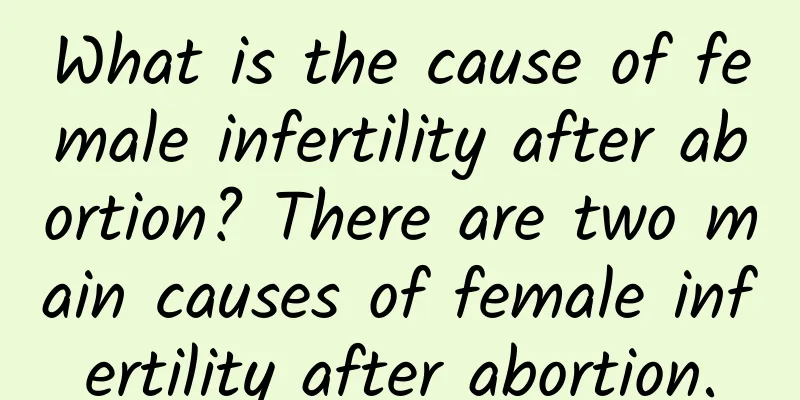What causes threatened miscarriage in women

|
What causes threatened miscarriage in women? Threatened miscarriage does not occur without reason. It may be caused by some unique reasons. Only by understanding the causes of threatened miscarriage can we do a good job of prevention and treatment. So what causes threatened miscarriage in women? Let's learn about this issue together. Causes of miscarriage 1. Chromosomal abnormalities: Chromosomal abnormalities include abnormal chromosome number, such as monosomy, trisomy, and polyploidy; structural abnormalities, such as breakage, deletion, and translocation can all lead to miscarriage. Some people have studied chromosomes in spontaneous abortion and therapeutic abortion and found that 60% of spontaneous abortions have abnormal karyotypes. Abnormal karyotypes are often accompanied by structural abnormalities in the fetus or placenta. In contrast, most aborted fetuses with normal karyotypes are normal. 2. Endocrine disorders: Excessive estrogen and insufficient progesterone are also causes of early miscarriage. During the 12th to 14th week of pregnancy, the placenta is formed to replace the function of the corpus luteum, which is prone to endocrine disorders, especially corpus luteum insufficiency. In addition, the lack of thyroid hormone hinders the cellular oxidation process, and hyperthyroidism and diabetes are prone to miscarriage. 3. Placental abnormalities and placental endocrine insufficiency: Decidualitis during early pregnancy can cause bleeding or hyperplasia of the basal decidua, dissolution of the chorionic epithelial cells and decidual cells, and blockage of blood vessels in the villi, affecting the absorption and transportation of nutrients, resulting in the separation of the fertilized egg from the attachment site, bleeding and miscarriage. In addition, huge infarction in the placenta can reduce the function of the placenta and affect the survival of the fetus. It is also not uncommon for placenta previa and placental villous edema to lead to miscarriage. After pregnancy, if the levels of beta-hCG, hPL, P, E2, and estrone in the mother's blood decrease in early pregnancy, 50% of miscarriages will occur. 4. Blood type incompatibility: Due to previous pregnancy or blood transfusion, the Rh factor and incompatible ABO blood type factor produce antibodies in the mother. During this pregnancy, the antibodies enter the fetus through the placenta and agglutinate with red blood cells to produce hemolysis, resulting in miscarriage. 5. Psychoneural factors: such as fright, severe mental stimulation, etc. can also cause miscarriage. In recent years, studies have shown that noise and vibration have a certain impact on human reproduction. |
<<: What to do for threatened miscarriage
>>: How to diagnose threatened abortion clinically
Recommend
What are the human factors that delay the treatment of ectopic pregnancy?
There are many factors that delay the treatment o...
Eating mushrooms can boost your metabolism and boost your immunity
Mushrooms are known as "vegetable steaks&quo...
How to differentiate fungal vaginitis
Among the many types of vaginitis, fungal vaginit...
How to check for female adnexitis
The examination of female adnexitis mainly relies...
Can I take ibuprofen for menstrual cramps?
Many women choose to take ibuprofen to relieve pa...
What tests should be done for endometriosis?
Endometriosis can cause some symptoms, such as pa...
What is cervical precancerous lesions?
Cervical precancerous lesions are a tumor disease...
Common symptoms of vulvar leukoplakia
Generally speaking, diseases will have some sympt...
What should I pay attention to if I have uterine fibroids and cysts? What should I do if I have uterine fibroids and cysts?
What should I pay attention to if I have uterine ...
Do the symptoms of uterine fibroids and ovarian cysts affect leucorrhea?
What are the symptoms of uterine fibroids and ova...
What are the causes of dysmenorrhea?
For women, menstruation is essential every month....
Experts explain the causes of ectopic pregnancy
Ectopic pregnancy is very harmful to many pregnan...
The main manifestations of endometriosis
In life, women are more susceptible to diseases t...
Six contraceptive foods to avoid abortion Ten types of contraceptive pills that women should not take
Some people do not want to have children so early...
What methods can prevent cervical warts
I believe everyone is familiar with cervical wart...









